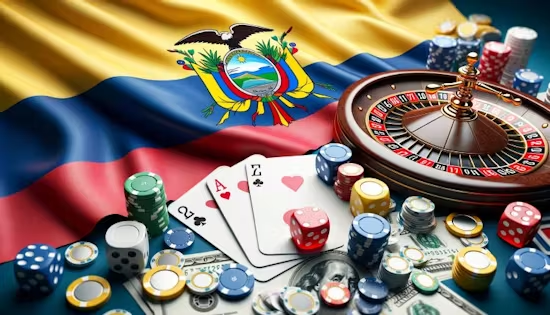In Ecuador, the government has lifted the ban on sports betting advertising. This decision, enacted during President Daniel Novoa's administration, could reshape the financial landscape of the sports and media industries, particularly football, as advertising revenue is crucial for clubs.
Changes in the Communications Law
President Novoa signed Executive Order No. 421, amending the Ecuadorian Law of Communication Organizations. The clause added in August 2023, which prohibited advertising for sports betting and forecasting systems, has been removed. This reversal now allows the media to once again promote gambling activities, which were banned during the administration of former President Guillermo Lasso.
The original ban, implemented in 2023, aimed to curb the growing influence of sports betting in media and football sponsorships. However, sports organizations, including the Ecuadorian Professional Football League (LigaPro), expressed concerns about the financial impact of this decision, believing it hindered a crucial source of revenue, especially after the COVID-19 pandemic.
Economic Impact on Football and Media
The financial situation of Ecuadorian football teams was particularly strained under the advertising ban, as betting companies had become a significant source of income for many clubs. With the return of betting ads, industry insiders anticipate that football clubs will benefit greatly. Many teams, whose revenues have been decreasing, can now resume or expand their partnerships with betting platforms, ensuring financial stability.
For the media, this change opens up new channels for advertising revenue. Betting companies are known for their substantial ad placements during football matches and on digital platforms, and now they can legally target the Ecuadorian market again. This, in turn, can provide much-needed funds for both traditional media and online platforms.
Sports Betting and Taxation
Before lifting the advertising ban, Ecuador established a new tax regime for sports betting companies. Earlier this year, the government implemented a system requiring sports betting operators to register with the Internal Revenue Service (SRI) and pay taxes on their income. As of August 2024, 65 betting companies, including local and international firms, have registered with the SRI, are legally operating in the country, and have agreed to pay a 15% tax on their total revenue.
This decision aims to increase government revenue and employment. The return of betting ads, combined with these regulations, marks a more structured and legalized approach for the betting industry, ensuring that it contributes to the national economy while remaining regulated.
President Novoa's decision to lift the advertising ban is not his only indication of regulating the betting industry. Under his leadership, discussions about broader legalization have surfaced. As early as 2024, Novoa proposed legalizing casinos, but the idea was withdrawn due to concerns about rising crime rates and violence.










